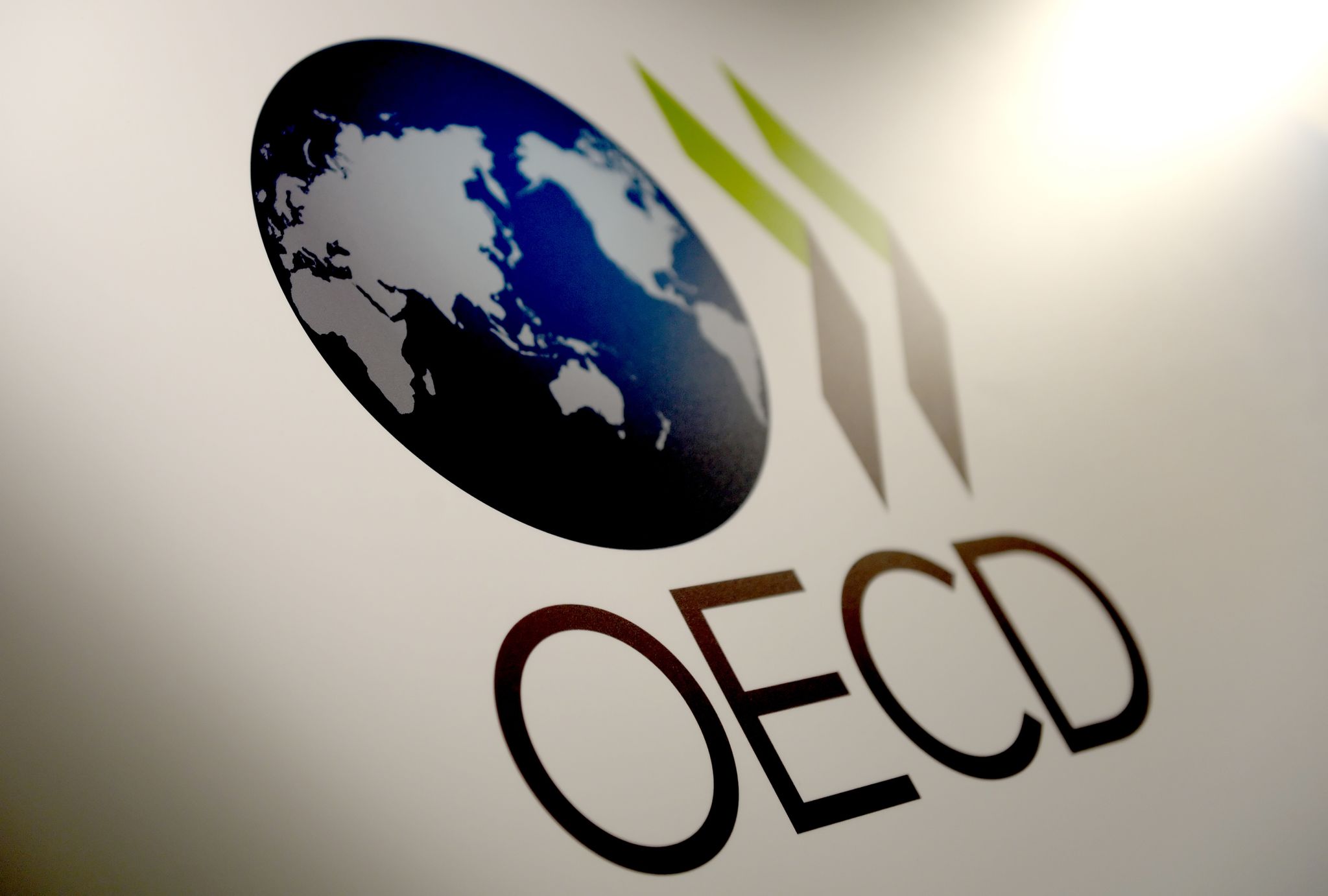
- DAX Breaks 20,000 Points As German Stocks Soar Despite Economic Slump
- Habeck Hints Of Closer Economic Ties With Africa In Narobi, Kenya
The Organization for Economic Cooperation and Development (OECD) has once again lowered its economic forecast for Germany, even as it predicted a 3.3 percent growth in the global economy next year.
The Paris-based organization said on Wednesday that German gross domestic product (GDP) would grow 0.7 percent in 2025 after remaining flat this year as growth is forecast is predicted to rebound at 1.2 percent in 2026.
A report by the German News Service (delivered by dpa) indicates that the latest figures are a further indicator of the German economy’s struggles, coming just three months after the OECD predicted 1 percent growth for 2025.
High uncertainty with regards to the financing and implementation of more climate-friendly production has lowered confidence among investors and consumers in Germany, the organization said.
In addition, weak foreign demand has weighed on economic activity. However, exports are slowly recovering, as demand from key trading partners increases, the report added.
Worldwide, the OECD expects economic growth of 3.3 percent in 2025 and 2026, with the Eurozone lagging behind on 1.3 percent and 1.5 percent. The OECD has 38 member countries, including the industrialized countries of Europe, North America, Japan, South Korea, Australia and New Zealand.
Besides, Germany’s benchmark DAX stock index briefly broke through the 20,000-point barrier for the first time on Tuesday after rising in morning trading.
The rally means the DAX has now risen by around 3,000 points over the course of 2024, after cracking the 17,000-point mark in December 2023. In the later morning, the index eased slightly to several points below 20,000. Hope among investors that interest rates will continue falling in both the United States and the Eurozone have helped drive the DAX higher for months.
In view of the recent significant fall in inflation, investors are betting that the European Central Bank (ECB) and US Federal Reserve will cut key interest rates further and thus boost the sluggish economy, particularly in Germany.
The prospect of falling interest rates is good news for equity investors. Shares are becoming more attractive again compared to fixed-interest securities such as bonds.
Loans are becoming cheaper, companies can therefore finance themselves more easily and investments are becoming more affordable.
As further proof that while the stocks soar, the economy sags, the record performance of Germany’s key stock-market index stands in contrast with the country’s economy, which has been stagnant or even shrinking for much of past three years.
However, investors are often looking not at the current situation, but at future profits. In addition, most of the 40 blue-chip stocks that make up the DAX index are major German corporations that are internationally active. For at least some of those firms, the sputtering German economy is just one market among many.
Solid economic data from China also provided a tailwind for share prices recently. It’s possible that German stocks received a boost from France’s current budget and governance crisis, with investors potentially shifting investments to Germany.
Also, the election of Donald Trump as the next President of the United State at the beginning of November put the financial markets in a buoyant mood, at least in the United States.
This is because Trump has promised tax cuts, less regulation – as well as high tariffs on imports, which could benefit the domestic economy and domestic producers in particular. Some investors expect international companies from Germany that are active in the US to get a boost as well.
On end of year pressure, the strong annual result for the DAX – which is up 19 percent on the year so far – may attract further buyers, according to observers.
Rising share prices at the end of the year are typical. On the stock market, this phenomenon is known as the “year-end rally.”
Meanwhile, German Economy Minister Robert Habeck has offered closer economic cooperation with African countries at a business conference in Nairobi on Tuesday, but urged countries to create better conditions for investment.
“German investors need a secure and stable investment environment,” Habeck said at the opening of the 5th German-African Business Summit in Nairobi, the Kenyan capital.
Better framework conditions are not only the basis for investments, but also for the lives of the people in the African countries themselves, Habeck said.
Habeck, who arrived in Kenya, pointed out the importance of economic cooperation in times of conflict and war as well as for tackling climate change.
The African continent is particularly exposed to the negative consequences of climate change, Habeck acknowledged, adding that global warming cannot be stopped, but it can be slowed down with the right action.
The German-African Business Summit, which is held every two years, is Germany’s most important business event on the African continent. This year, there are around 800 participants from 35 African countries and Germany, which the Kenyan Prime Minister Musalia Mudavadi also attended.
Africa is of interest to the German economy due to its high economic dynamism. The continent has the second highest economic growth rate worldwide, after Asia, albeit starting from a low economic level.
Last year, German foreign trade with the continent reached a record volume of €61.2 billion ($64.2 billion). On the first day of his visit on Monday, Habeck learned about the development of renewable energies and the training of skilled workers.
In Kenya alone, between 800,000 and 1 million young, mostly well-educated people enter the labour market every year, where many of them have little opportunity to progress professionally.











